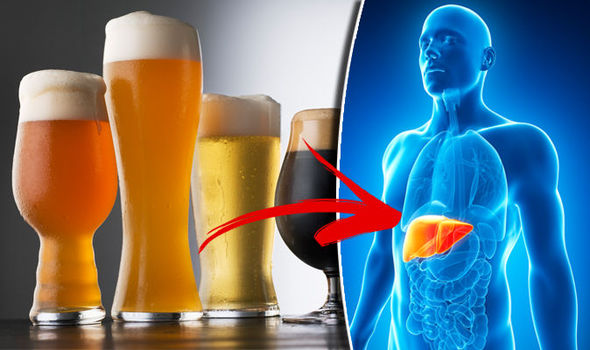The liver’s principal role is to filter toxins from the digestive tract into the bloodstream. It also creates bile, which is used by the body to digest food.
On the other hand, the liver has difficulty processing high amounts of alcohol in the body. A person who drinks more than two drinks each day puts their liver under a lot of stress and is at a higher risk of getting liver disease.
If someone you know drinks too much alcohol and has health problems, you should take them to an experienced liver specialist in Mumbai like Dr. Gaurav Gupta to receive the most-effective treatment.
Dr. Gaurav Gupta is an expert liver transplant doctor in Mumbai with 15+ years of experience. He is skilled in performing liver transplants, HPB surgeries, pediatric liver transplants, and pancreas transplants.
To know more about the impact of alcohol on the liver and treatments for alcoholic liver disease, take a look at this article.
First, let’s know,
What happens when a person consumes alcoholic beverages?

Did you know that one sort of alcoholic drink takes the liver an hour to process? As a result, the more you drink, the longer your liver will take to digest the alcohol.
When your body has too much alcohol in it, it puts a burden on your liver cells and damages them. Fatty liver, also known as fibrosis, is a disorder that develops over time. Even it can cause cirrhosis or severe liver damage.
Let’s take a look at,
Symptoms of Liver Disease
You may experience the following symptoms if you have liver disease:
- Dark-colored urine.
- Nausea or vomiting.
- Discolored stools.
- Yellowish appearance of eyes and skin.
- Swelling in the abdomen.
- Abdominal pain.
- Swelling in the legs and ankles.
- Low appetite.
- Weakness.
If you have any of these symptoms, you should consult a proficient liver specialist in Mumbai to see if you have any liver problems.
Now, let’s discuss about,
Types of Alcoholic Liver Disease
- The most frequent type of liver disease is fatty liver, which affects hefty drinkers. A person with this condition accumulates fat in their liver. If the person does not drink alcohol, the condition can be reversed.
- Some patients with fatty liver may also experience mild liver inflammation. Alcoholic hepatitis is another name for this illness.
- A condition known as acute alcoholic hepatitis is a life-threatening condition. Symptoms such as stomach pain, loss of appetite, and yellow-coloured skin are possible. In the long run, it could lead to liver failure.
- A heavy drinker may develop cirrhosis or scarring of the liver. This illness has a build-up of scar tissue in the liver, preventing the liver from functioning correctly. It may eventually result in liver failure. Loss of appetite, blood vomiting, and abdominal swelling are some of the signs and symptoms.
Treatment for Alcoholic Liver Disease
- If you have fatty liver disease, you must refrain from consuming alcoholic beverages for at least a fortnight to reverse the condition.
- If you have a more severe illness, such as alcoholic hepatitis or cirrhosis, your doctor will advise you to stop drinking.
- A liver transplant may be the only choice in life-threatening cases of liver disease.
As you can see, drinking too much alcohol is extremely harmful to your liver and can cause major disruptions in your daily routine. If you or your loved one is diagnosed with alcoholic liver illness, consult Dr Gaurav Gupta, one of the leading liver specialists in Mumbai, for a proper diagnosis and treatment.
To evaluate patients and provide the best possible liver treatment regimens, Dr Gupta employs the most current diagnostic procedures. His treatment may increase your chances of complete healing and return to a normal, active lifestyle.

